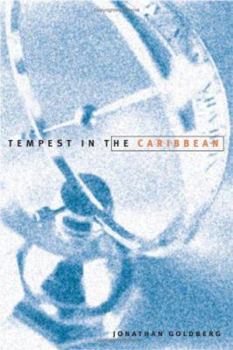Tempest in the Caribbean
Shakespeare's The Tempest has long been claimed by colonials and postcolonial thinkers alike as the dramatic work that most enables them to confront their entangled history, recognized as early modernity's most extensive engagement with the vexing issues of colonialism--race, dispossession, language, European displacement and occupation, disregard for native culture. Tempest in the Caribbean reads some of the "classic" anticolonial texts--by Aime Cesaire, Roberto Fernandez Retamar, George Lamming, and Frantz Fanon, for instance--through the lens of feminist and queer analysis exemplified by the theoretical essays of Sylvia Wynter and the work of Michelle Cliff. Extending the Tempest plot, Goldberg considers recent works by Caribbean authors and social theorists, among them Patricia Powell, Jamaica Kincaid, and Hilton Als. These rewritings, he suggests, and the lived conditions to which they testify, present alternatives to the masculinist and heterosexual bias of the legacy that has been derived from The Tempest. By placing gender and sexuality at the center of the debate about the uses of Shakespeare for anticolonial purposes, Goldberg's work points to new possibilities that might be articulated through the nexus of race and sexuality. Place sexuality at the center of Caribbean responses to Shakespeare's play.
Format:Paperback
Language:English
ISBN:0816642613
ISBN13:9780816642618
Release Date:December 2003
Publisher:University of Minnesota Press
Length:192 Pages
Weight:0.65 lbs.
Dimensions:0.5" x 6.1" x 9.0"
Customer Reviews
0 rating





